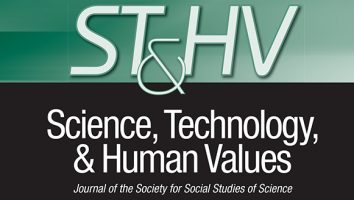Sustainability
How should we best steward our planet?
Sustainability is more than recycling, and the Rock Ethics Institute is researching how we can meet the needs of the present without compromising the needs of future generations.
Sponsored Research
Principal Investigators:
The Climate and Sustainability Ethics Initiative has focused on the interdisciplinary integration of ethical perspectives into STEM research on climate change risks and approaches to managing those risks. Our current research creates a partnership between the Rock Ethics Institute and a new large-scale research project, the Megalopolitan Coastal Transformation Hub (MACH, PI: Bob Kopp, Rutgers). This five-year, NSF-funded project does stakeholder-driven research to inform regional and municipal-level climate adaptation planning in the Northeastern USA (Philadelphia, NYC, and New Jersey). We lead one of its five main branches: “Values and Ethics”. Our role is to highlight, and facilitate management of, the various motivating values within the project. These values include concern for advancing science, serving community needs, helping decision makers, and addressing issues of equity and justice in climate adaptation. The partnership supports the integration of equity considerations and other stakeholder values into the assessment of potential strategies for managing changing coastal climate risks.
Principal Investigator
According to the World Health Organization, antimicrobial resistance (AMR) is a serious threat to global public health and it requires action across all government sectors and society (WHO 2018). Antimicrobial resistance is argued to be putting at risk not only humans, but the world’s ability to achieve the United Nations Sustainable Development Goals (SDGs). Humans and agricultural animals situated in industrialized countries are considered large contributors to AMR due to overconsumption, with animal agriculture utilizing the most antibiotics—70 percent of all sales in the U.S. (Thorton 2017; Van Boeckel et al. 2015). Also contributing to AMR is inappropriate use of antibiotics. In Rwanda, due to lack of access to and appropriate regulation of pharmaceutical use for animals it is possible we find higher rates of AMR among farm located closer to urban populations (where there is increased access to antibiotic use) and among lower-income farmers who do not have enough money to purchase the appropriate amount of pharmaceuticals to treat sick animals. Our study seeks to better understand how antibiotic use on farms contributes to AMR. This study will be among the first of its kind to study (a) how farmers decide when to use antibiotics and (b) if the amount of antibiotic use contributes to AMR.
Human and Ethical Dimensions of Antimicrobial Resistance
Related News
Related Publications








